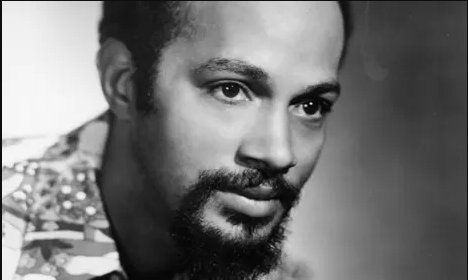The unusual combination of a French horn, a grand piano, an electric sitar and a glockenspiel provided the introduction to Didn’t I (Blow Your Mind This Time), a swooning soul ballad that took the Delfonics, a Philadelphia vocal trio, to the top of the US charts tin the early weeks of 1970, selling a million copies and earning them a Grammy award for the year’s best performance by an R&B duo or group. The record also established the credentials of Thom Bell, their 26-year-old producer and arranger, whose classical training lay behind his often strikingly unorthodox orchestrations.
Bell, who has died aged 79, was one of the creators of the Philadelphia sound, a style of smooth soul music that dominated the pop, R&B and disco charts throughout the 1970s. After the Delfonics, he produced hits for the Stylistics, the Spinners (known in the UK as the Detroit Spinners to avoid confusion with a popular folk group), New York City, Dionne Warwick, Elton John and Deniece Williams.
On many of his productions, Bell balanced his penchant for romantic string arrangements with subtle syncopations that served to lodge a key phrase permanently in the listener’s memory. Like Burt Bacharach, whose work he admired, he enjoyed playing with structures and textures. However mellow his records sounded, they were seldom bland and were always built to last. In 1997 Quentin Tarantino made Didn’t I (Blow Your Mind This Time) a key element of his film Jackie Brown.
Born in Philadelphia, Bell was one of 10 children of Anna and Leroy Bell, with Jamaican antecedents on his mother’s side. Anna, who worked as a stenographer, was a pianist, and Leroy, who owned a fish market and a restaurant, played accordion and Hawaiian guitar.
Their son was given a drum kit at the age of four, followed a year later by piano lessons. He studied alongside the future black classical piano star André Watts, whose parents had settled in Philadelphia, but he had also begun listening to the R&B radio stations, impressed in particular by Little Anthony and the Imperials, whose records, written and produced in New York by Teddy Randazzo, highlighted the high tenor voice of Anthony Gourdine against lush backgrounds.
Bell and a friend, Kenny Gamble, formed a duo, Kenny and Tommy, which evolved into a vocal group called the Romeos. Neither, however, was destined for a career as a performer. Having dropped out of high school to forge a career in music, Bell worked as a songwriter for a publishing company owned by the singer Chubby Checker before joining the Cameo-Parkway record label, where he served an apprenticeship as pianist, arranger and conductor.
Bell’s first hits as a producer came with the Delfonics, featuring the high tenor of William “Poogie” Hart, starting in 1968 with La-La (Means I Love You). When that partnership ended after two years, he moved on to another Philadelphia vocal group, the Stylistics, whose lead singer, Russell Thompkins Jr, also possessed a distinctive high voice. Bell and his new writing partner, the 23-year-old lyricist Linda Creed, achieved their first hit with the Stylistics’ Stop, Look, Listen (To Your Heart), which reached the Billboard Top 40 in 1971.
It was followed by You Are Everything, Betcha By Golly Wow, I’m Stone in Love With You and Break Up to Make Up, all reaching the Top 10, often using the plangent sound of the electric sitar (played by the session guitarist Bobby Eli) as a lead instrument.

With Gamble and Leon Huff, another pianist and songwriter, Bell formed a publishing company called Mighty Three Music. In 1972 Gamble and Huff started a new label, Philadelphia International; the first of their many big hits, the O’Jays’ Back Stabbers, used Bell’s arrangement for horns and strings to add a touch of luxury to a record aimed at the dancefloor, establishing a formula that made the label a natural successor to Motown.
The Spinners, formerly a low-ranked Motown act, were the next to benefit from Bell’s expertise. On their string of hits – I’ll Be Around, Could It Be I’m Falling in Love, One of a Kind (Love Affair), Ghetto Child and Mighty Love – Bell toughened up the sound to suit the group’s two lead singers, Bobby Smith and Philippé Wynne. Their artistic highpoint was reached in 1974 with Love Don’t Love Nobody, a raw, deep-soul ballad featuring Wynne’s voice and Bell’s gospel-drenched piano, but their biggest hit came the same year when the brightly infectious Then Came You, a collaboration with Dionne Warwick, went to No 1 on the US Billboard chart.
He recorded two albums with Johnny Mathis, but sessions with Elton John in 1977 produced only three tracks, of which one, Are You Ready for Love, had to wait until a 2003 reissue before it became a hit. In 1982 Bell’s remake of It’s Gonna Take a Miracle, written by Randazzo for the Royalettes in 1965, took the singer Deniece Williams into the Top 10.
After a first marriage, to Sylvia, ended in divorce in 1984, Bell moved to Seattle with his second wife, Vanessa. They built a house overlooking Bellingham Bay, Washington State, in 1998. There, having withdrawn from the music business, he pursued his interest in food, with the aid of a library of more than 1,500 cookery books.
Vanessa survives him, along with four sons, Troy, Mark, Royal and Christopher, two daughters, Tia and Cybell, a sister, Barbara, four grandchildren and four great-grandchildren.
Thom (Thomas Randolph) Bell, record producer, arranger and songwriter, born 26 January 1943; died 22 December 2022














